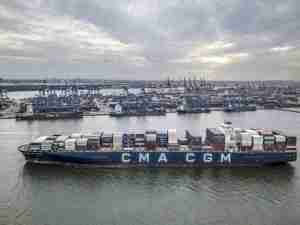A mixture of vessels have been arriving daily at the Port of Vancouver for canola, an export source confirmed. Destinations for the canola included Japan, Mexico and China, as well as Pakistan. The Canadian Wheat Board's export program was also underway, with vessels arriving to load both barley and wheat. Peas were being loaded onto ships at Vancouver as well.
"Most of this business was concluded at least two months ago, and we have yet to see fresh business come on board," the exporter said. "However, when it does, that's when the real test will occur, as a lot of it will likely need to be moved in a very short period of time."
The exporter commented that countries have been slow to make purchases in view of uncertainty surrounding quality and quantities. Some concern about Canada's ability to move commodities to the export destination on time was also a factor in the hesitancy to book.
A trader of Winnipeg Commodity Exchange futures contracts agreed that this should be the time of year when exports increase significantly, but there has been a reluctance to book as customers were waiting to see if Canada can meet its rail transportation requirements and avoid possible bottlenecks in the system.
Customers were also said to be waiting for better clarity on the size and quality of Canada's grain and oilseeds, the WCE source commented.
"There is nothing really new in all this, as typically the fall period is when Canada's grain and oilseed transportation system is put to the test," Mike Jubinville, an analyst with the farmer advisory service, ProFarmer Canada said.
"This is the time of year when we have a huge amount of grain and oilseeds to move in a very short period of time," he said. "There is always the strong probability of bottlenecks as the private industry goes head to head with the Canadian Wheat Board for available rail cars."
Officials from Canadian National Railway (CNI) and Canadian Pacific Railway (CP) have previously indicated that a lot of preparation and planning has already been put into moving this year's harvest.
CPR's fleet heading into the 2005/06 (Aug/Jly) crop year was pegged by Ed Greenberg, a media relations spokesman with CPR at about 12,000 hopper cars.
Jim Feeny, a media relations spokesman with the grain division of CNR said his company had put together a fleet of 12,200 hopper cars for the movement of grains and oilseeds in Western Canada.
Exports of the eight major grains and oilseeds in Canada during 2005/06 was pegged by Agriculture and Agri-Food Canada recently at 27.300 million metric tons, which would compare with the 2004/05 total of 23,659 million tons. The eight major grains and oilseeds include, all wheat, barley, corn, oats, rye, canola, flaxseed and soybeans. Exports of Canada's pulse and specialty crops were forecast at 3.368 million tons, compared with 2.946 million in 2004/05. (Dow Jones & Company, Inc.)








